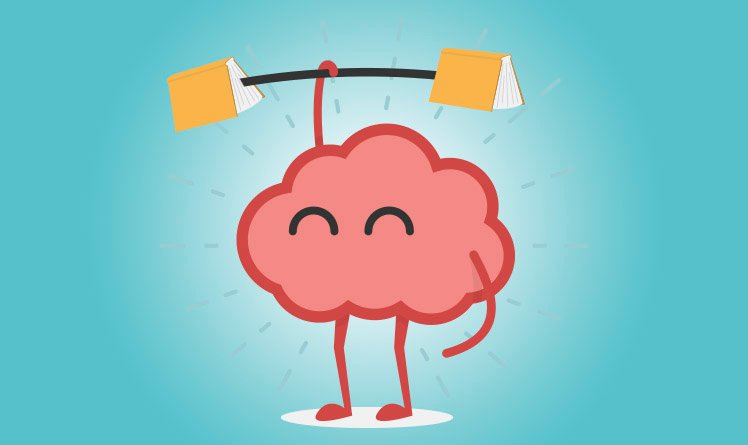Tips for exercising your brain

|
Getting your Trinity Audio player ready...
|
We all know how important it is to keep our bodies in shape, but have you ever stopped to think about the importance of exercising our brains? Just as our muscles need activity to stay healthy and strong, our brains also benefit from regular stimulation.
In this article, we’ll explore several ways to exercise your brain and improve your cognitive health.
Importance of exercising the brain
Our brain is an incredibly complex organ responsible for controlling all of our body's functions, from simple activities like breathing to complex tasks like solving math problems. As such, like any other organ, it needs to be cared for and exercised to function at its best. Brain exercise helps strengthen the connections between neurons, promoting neuroplasticity and reducing the risk of neurodegenerative diseases, such as Alzheimer's.
There are many benefits to exercising your brain, including:
- Improved memory and learning: When you learn something new, your brain creates neural connections. So the more you exercise your brain, the easier it will be for you to learn and remember new information.
- Increased thinking and creativity: Exercising your brain can help you think more creatively and solve problems more effectively.
- Reduction of stress and anxiety: Exercising your brain can help reduce stress and anxiety by releasing endorphins, which have a calming effect on the body and mind.
- Preventing neurodegenerative diseases: Exercising your brain can help prevent neurodegenerative diseases like Alzheimer's and Parkinson's by keeping your brain active and healthy.
“"Exercising the brain means stimulating neural connections and strengthening neuroplasticity — the process that allows the brain to learn and change throughout life."”
Understanding neuroplasticity
Neuroplasticity — or brain plasticity — is the brain's ability to... change your connections, create new paths, and reorganize yourself. Throughout life. For a long time it was believed that the brain remained "ready" after childhood, but today science has proven otherwise: we are capable of learning, evolving and transforming patterns even at 30, 40, 60 years of age or more.
“"Neuroplasticity is the brain's ability to create new connections and adapt to new experiences throughout life."”
How to exercise your brain: tips and activities
There are many ways to exercise your brain, from simple activities you can do on a daily basis to more challenging games and hobbies. One of the best ways to exercise your brain is to challenge your routine. This means stepping out of your comfort zone and trying new things.
“"Stimulating the brain improves memory, creativity, focus, and reduces the risk of neurodegenerative diseases."”
Physical activities to stimulate the brain
It's not just the body that benefits from exercises aerobic exercises such as running, swimming and cycling, but also the brain. These activities increase blood flow to the brain, providing oxygen and nutrients essential for its proper functioning. In addition, aerobic exercises stimulate the release of neurotransmitters such as dopamine, which are associated with improved mood and cognitive function.
Another type of physical activity that helps stimulate the brain is dancing. It is a fun and social activity that also offers significant benefits for the brain, combining physical exercise with mental challenges, such as learning new steps and choreography, which can help improve memory and executive function.
“"Aerobic exercise increases cerebral blood flow, elevates neurotransmitters, and improves cognitive function."”
Nutrition and supplementation for the brain
One good nutrition has a direct relationship with brain health. Omega-3 fatty acids, found in fish such as salmon and sardines, are essential for brain health. They help strengthen cell membranes and promote communication between neurons, which can improve cognitive function and reduce the risk of brain diseases.
Additionally, colorful fruits and vegetables are rich in antioxidants, which help fight oxidative stress and inflammation in the brain. This may protect against brain aging and reduce the risk of diseases like Alzheimer’s.
And don’t forget to drink water! Water plays a crucial role in healthy brain function. When we drink water, we help maintain fluid balance in the body, which is essential for proper brain function. What’s more, water helps transport essential nutrients to the brain, ensuring it receives the elements it needs to function properly, and it also helps regulate body temperature, keeping the brain in optimal working order.
Meditation and mindfulness
THE meditation Meditation is an ancient practice that has been linked to a number of benefits for the brain, including reduced stress, improved memory, and increased attention and concentration. In this sense, regular meditation practice can promote positive changes in the structure and function of the brain, strengthening areas associated with emotional control and mood regulation.
“"Mindfulness is training the mind to remain in the present moment, reducing stress and increasing mental clarity."”
THE mindfulness, or mindfulness, involves being aware of the present moment and accepting our thoughts and emotions without judgment. This practice can help reduce mental rumination and anxiety, promoting greater mental clarity and emotional well-being.
Challenge your brain with new experiences
Learn a new skill or hobby It’s a great way to challenge your brain and promote neuroplasticity. This can be anything from playing a musical instrument to learning a new language, as long as it’s something new and challenging for you.
Exploring new places and cultures can stimulate the brain in unique ways, exposing it to new sensory experiences and cognitive challenges. What’s more, traveling can also help expand our perspectives and increase our creativity.
“"Learning something new is one of the most powerful stimuli for strengthening brain plasticity."”
Socialization and interaction
Interacting with others is not only good for our emotional health, but also for our brain health. Socializing can help reduce stress, promote mental health, and improve cognitive function, especially in older adults.
So, joining groups or clubs with similar interests can provide a valuable source of social support and intellectual stimulation. This could be a book club, a walking group, or even an art class. The important thing is to engage in activities that stimulate you mentally and connect you with others.
Adequate sleep and rest
Sleep plays a crucial role in memory consolidation and information processing. During sleep, the brain performs a series of cleansing and repair processes that are essential for its long-term health.
To ensure quality sleep, it is important to create a regular sleep routine, avoid caffeine and electronics before bed, and create a calm and comfortable sleeping environment. The practice of meditation mindfulness can be a great ally to reduce stress and bring relaxation before bed.
“"During sleep, the brain consolidates memories and eliminates toxins accumulated throughout the day."”
Stimulate all the senses
Stimulate all the senses, such as sight, hearing, smell, taste and touch, can help strengthen the neural connections and promote brain plasticity. This can be done through activities such as trying new foods, listening to music, practicing yoga or simply enjoying nature.
In this sense, art and music have the power to evoke emotions and stimulate the imagination, which can be extremely beneficial for the brain. Therefore, visiting museums, art galleries or watching live musical performances are excellent ways to stimulate your creativity and aesthetic appreciation.
Games and puzzles
Board games
Playing board games is a fun and effective way to exercise your brain, as it involves skills like strategy, planning, and problem-solving. Plus, board games are a great way to socialize with friends and family.
Crosswords and Sudoku
Crosswords, Sudoku, and other puzzles are great activities to stimulate logical thinking and memory. They are also a fun way to pass the time and challenge yourself mentally.
Practice gratitude and positive thinking
Positive thinking has been linked to a number of benefits for the brain, including reduced stress, increased emotional resilience, and improved overall health. Cultivating a positive mindset can help strengthen neural connections associated with happiness and well-being.
Practice the gratitude Regularly practicing gratitude can help train your brain to focus on the positive and cultivate an attitude of appreciation toward life. This can be done by keeping a gratitude journal, where you write down three things you are grateful for each day, or simply by taking time to reflect on the blessings in your life.
Stress management
Impact of stress on the brain
Chronic stress can have significant detrimental effects on the brain, including reduced cognitive function, increased risk of depression, and anxiety, and even damage to brain cells. It's important to find healthy ways to deal with stress and protect your long-term brain health.
Stress reduction techniques
There are several effective techniques for reducing stress and promoting mental well-being, such as breathing exercises, meditation practice, mindfulness, regular exercise, and cognitive behavioral therapy. So, experiment with different strategies to find what works best for you and make them part of your daily routine.
“"Chronic stress impairs memory, attention, and decision-making."”
In short…
Exercising your brain is essential for maintaining cognitive health and emotional well-being throughout your life. By incorporating physical, mental, and social activities into your daily routine, you can strengthen neural connections, promote brain plasticity, and reduce the risk of neurodegenerative diseases.
So challenge yourself, try new things, and take care of your brain like you would any other muscle in your body. Your brain will thank you for it!
FAQ – Questions and answers about Exercise the Brain
1. What is the best activity to start exercising the brain?
Combining physical activity with some simple cognitive practice — such as reading, puzzles, or learning something new — is the best way to start.
2. How much time per day should I dedicate to "training" my brain?
Just 10 to 20 minutes a day can already generate significant changes in memory, attention, and focus.
3. Does exercising the brain really prevent Alzheimer's?
There is no guarantee, but keeping the brain active significantly reduces the risk by strengthening neural connections and slowing cognitive decline.
4. Does mindfulness really help the brain?
Yes. Studies show that mindfulness strengthens the prefrontal cortex, improves focus, reduces anxiety, and increases decision-making ability.
5. Does diet really influence brain health?
Absolutely. Nutrients like omega-3s, antioxidants, B vitamins, and water are essential for keeping the brain protected, active, and healthy.
Recommended reading:

Train Your Brain – Vol. 1 – The Best Challenges Against Brain Aging
Image: Freepik
This article was originally published on April 22, 2024, and updated on this date.

Marcel Castilho is an expert in neuromarketing, neuroscience, mindfulness and positive psychology. In addition to being an advertiser, he also has a Master's degree in NLP – Neurolinguistic Programming. As the owner and founder of the communications agency VeroCom and also of the digital agency Vero Contents, he has been studying human behavior for over 30 years.

